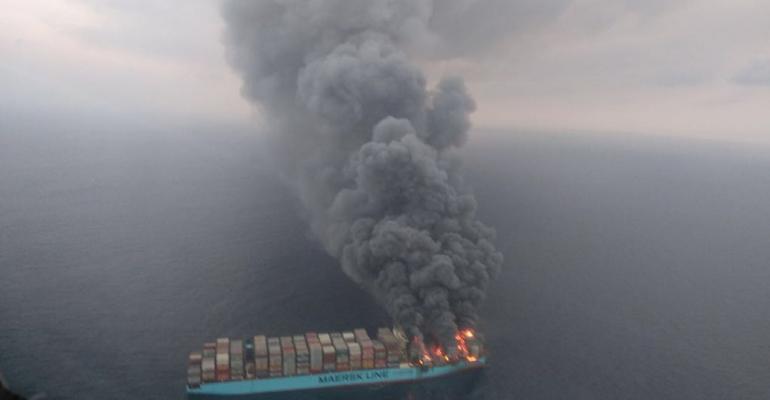Speaking at the Safety@Sea conference in Singapore last week, Yves Vandenborn, director of loss prevention for the Standard Club, highlighted that cargoes such as calcium hypochlorite were perfectly safe if carried correctly, however, the issue was malicious shippers were misdeclaring the cargoes to save on cost.
Firefighting
“A lot is being done by container shipping companies to fight fires onboard, but by then it’s too late. You have to try and avoid getting the box on board,” he told the conference.
Similarly ensuring dangerous cargoes are stowed away from areas such as bunker tanks and the engine room only works if the line knows the box contains dangerous cargo.
In knowing what cargo a vessel is carrying Vandenborn said it was important to know your customer. “I feel this is one the big problems there is when you are shipping containers, everything goes so fast onboard container ships and equally fast in the booking office. Do you actually know who you shipper is? No you don’t,” he stated.
Freight fowarders
In many case lines are actually far removed from the end customer. “Very often in China you are working with freight forwarders, who are working with freight forwarders, who are working with freight forwarders, who might work with an actual shipper.”
There was also a question of whether the shipper actually exists or is simply a brass plate company. A malicious trying to deceive the nature of the cargo is likely to just be a brass plate company.
Vandenborn stressed the need for documentation and laboratory tests to be properly checked and all staff in the booking process to be trained to spot mis-declared dangerous cargo. “It is really important you train all the people on your booking side whether they are on the DG (dangerous goods) desk, non-DG desk or document control.”
Slot charterers
Even then there issue of accepting cargo from slot charterers that may not have the same procedures in place. He likened this to accepting to carry luggage from a friend at the airport, even that person would not tell you what was in the luggage.
“You may have lot of procedures in place on your own ships to check that all the cargo is properly declared but do you know what your slot charterers are putting on board?” Vandenborn asked.
Copyright © 2024. All rights reserved. Seatrade, a trading name of Informa Markets (UK) Limited.
Add Seatrade Maritime News to your Google News feed.  |

